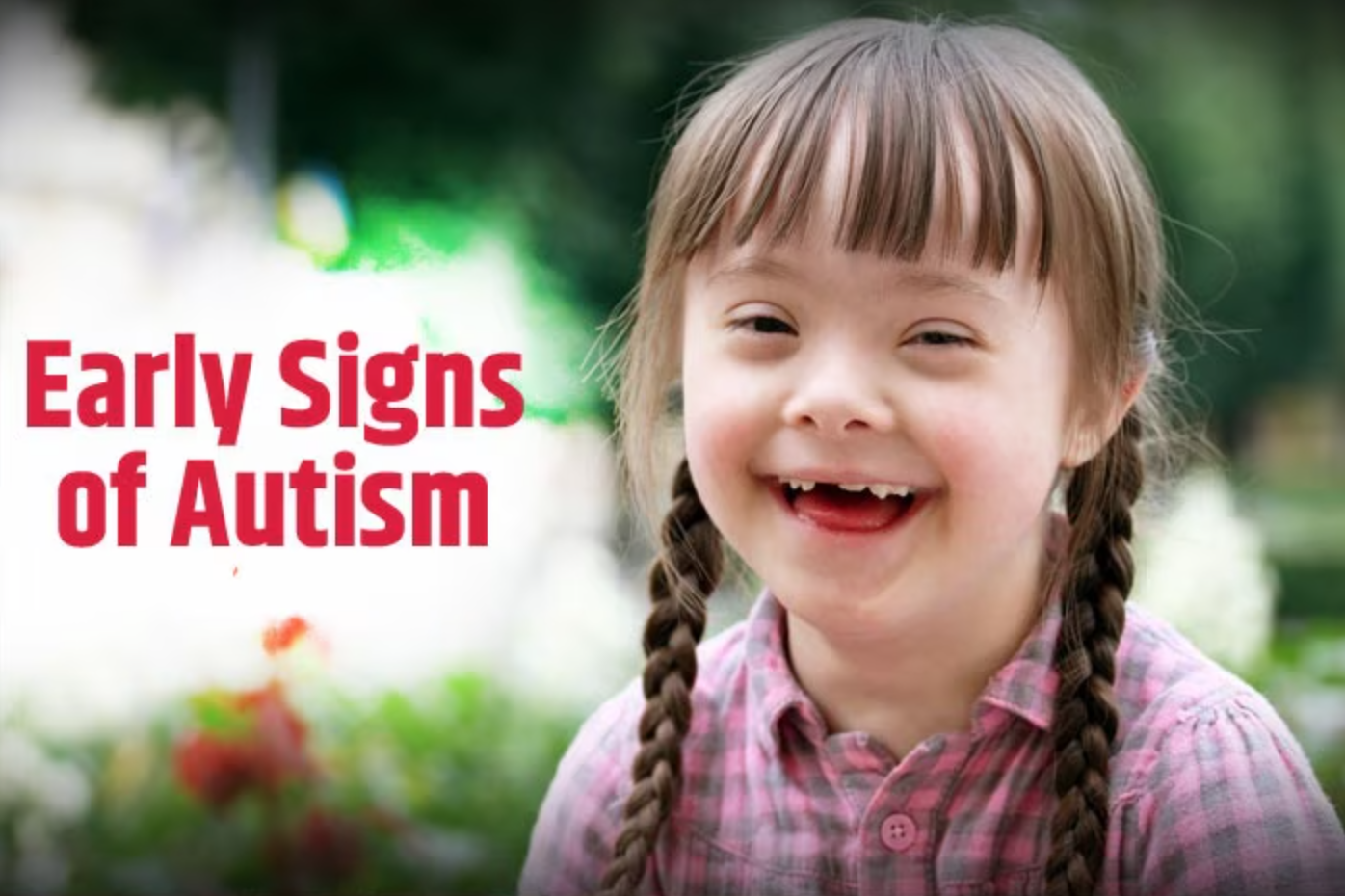Autistic Boy Sentenced To 5 Years: A Deep Look At Justice And Neurodiversity
When news breaks about an autistic boy sentenced to 5 years, it truly stops many of us in our tracks. This kind of report, it really brings up so many important questions about fairness, about how well we truly understand people, and about the workings of our justice systems. It is, you know, a very stark reminder that not everyone experiences the world in the same way, and that has big implications for how they interact with rules and laws. This situation makes us think deeply about how individuals with unique brain differences, like those on the autism spectrum, are treated within legal processes.
Such a headline, it naturally sparks a lot of conversation and concern among people who care about human rights, about social fairness, and about the specific needs of vulnerable groups. It also shines a light on the broader topic of neurodiversity and how our societal structures, which are often built for neurotypical individuals, might not always fit everyone else. You see, autism spectrum disorder, as my text explains, is a condition tied to brain development, and it really changes how people perceive others and how they engage socially. This often leads to difficulties in talking with others and getting along in social settings, actually.
This particular story, or rather, the idea of an **autistic boy sentenced to 5 years**, prompts us to consider the significant challenges faced by individuals with autism when they come into contact with the law. It makes us wonder about the circumstances that led to such an outcome and whether the unique characteristics of autism were fully taken into account. My text tells us that autism, also known as autism spectrum disorder (ASD), is a neurodevelopmental condition marked by differences or difficulties in social communication and interaction, a preference for things being predictable and routine, and sensory processing differences. These characteristics, as you can imagine, can create complex situations in a legal environment.
Table of Contents
- Understanding Autism Spectrum Disorder
- Autism and the Justice System: Challenges and Considerations
- The Implications of a Sentence for Autistic Individuals
- Supporting Autistic Individuals in Legal Contexts
- Frequently Asked Questions (FAQs)
Understanding Autism Spectrum Disorder
To truly grasp the gravity of an **autistic boy sentenced to 5 years**, it helps to really understand what autism spectrum disorder (ASD) means for a person. My text describes ASD as a neurodevelopmental condition that shows up during early childhood. It's a lifelong neurodivergence and a disability, influencing how people experience and interact with the world, you know. For example, someone with ASD might use eye contact or body language in ways that are different from someone who's neurotypical, so it's almost like a different way of speaking without words.
The condition also includes patterns of behavior that can be quite limited or repeated. This is what most people think of when they hear the word autism; it affects social interactions, communication, and play, especially in children younger than three years, as my text points out. Learning about the signs and symptoms of ASD is very important because early identification, along with treatment and support, really matters. Many key outcomes for children's lives are significantly improved with early diagnosis and proper treatment, too it's almost a given.
My text further explains that autism is a neurodevelopmental condition that affects a person’s ability to communicate and interact with others. This often involves challenges with starting and keeping conversations going, a really intense focus on special interests, and sometimes repetitive language or behaviors. These characteristics are not choices, but rather fundamental aspects of how an autistic person's brain works. Understanding these core features is the first step toward creating a more accepting and appropriate environment for everyone, particularly within systems that demand specific social and communication norms, like the legal system, you know.
Autism and the Justice System: Challenges and Considerations
The idea of an **autistic boy sentenced to 5 years** brings into sharp focus the very real difficulties that individuals with autism spectrum disorder often face when they encounter the justice system. This system, it often assumes a certain level of social understanding, of communication ability, and of emotional regulation that might not be present in someone with ASD. So, this can lead to serious misunderstandings and outcomes that aren't quite fair. It's a complex area, really, where the needs of the individual can clash with the rigid structures of the law.
My text highlights that autism involves differences or difficulties in social communication and interaction, a preference for predictability and routine, and sensory processing differences. These traits can become significant hurdles during police questioning, in courtrooms, and within correctional facilities. For instance, a direct question might be taken literally, or an indirect social cue might be missed entirely, which could be misinterpreted as deception or lack of cooperation. This is why it's so important to have a deeper look at these specific challenges, you know.
Communication Barriers in Legal Settings
One of the most immediate challenges for an autistic person in a legal setting stems from communication differences. My text explains that autism affects a person’s ability to communicate and interact with others, often involving challenges with starting and maintaining conversations. This means that during an interrogation or a court hearing, an autistic individual might struggle to give clear, concise answers, or they might not understand the subtle nuances of legal language. They might also find it difficult to articulate their thoughts under pressure, which is very common in these situations.
Furthermore, an autistic person might not understand implied threats or promises, or they might agree to things they don't fully grasp just to end a stressful interaction. This can lead to false confessions or misunderstandings that really complicate their case. The way questions are phrased, the speed of conversation, and the expectation of eye contact can all create significant barriers. For example, my text mentions that eye contact or body language might be used differently by someone who’s neurotypical, and this can be misinterpreted as evasiveness or dishonesty by those not familiar with autism, so it's a bit of a problem.
Sensory Sensitivities and Court Environments
Courtrooms and police stations are often places filled with intense sensory input: bright lights, loud noises, unfamiliar smells, and crowded spaces. For someone with autism, who often experiences sensory processing differences as my text describes, these environments can be incredibly overwhelming. This sensory overload can cause significant distress, anxiety, and even meltdowns, making it nearly impossible for the individual to focus, understand, or participate effectively in proceedings. It's like trying to think clearly in a very noisy, chaotic place, which is incredibly hard.
The preference for predictability and routine, which is another characteristic of autism according to my text, also means that the unpredictable nature of legal proceedings can be very unsettling. Delays, sudden changes in schedule, or unexpected questions can heighten anxiety and make it harder for an autistic person to cope. This stress can then affect their ability to communicate or cooperate, which might be mistaken for defiance or lack of remorse, actually. This really shows how important it is to consider these sensory aspects, you know.
Interpreting Behavior and Intent
Perhaps one of the most critical issues when an **autistic boy sentenced to 5 years** is considered is the interpretation of his behavior and intent. My text notes that autism is characterized by differences in social communication and interaction, as well as limited and repeated patterns of behavior. These behaviors, which are part of their neurodivergence, might be misunderstood by law enforcement or court officials who are not familiar with autism. For example, a lack of emotional expression might be seen as coldness, or repetitive movements might be misinterpreted as nervousness or guilt.
The concept of "intent" is central to many legal cases, but for an autistic person, their intent might be very different from what a neurotypical person would assume. They might not understand the social implications of their actions, or they might act based on a literal interpretation of rules without grasping the broader context. This makes it very difficult for them to explain their actions in a way that aligns with legal expectations. My text emphasizes that autism influences how people experience and interact with the world, and this different way of interacting can lead to serious misjudgments about their true intentions, so it's a rather tricky area.
The Implications of a Sentence for Autistic Individuals
When we consider an **autistic boy sentenced to 5 years**, the implications extend far beyond the immediate legal outcome. For an autistic individual, incarceration can be particularly damaging due to the sensory-rich, unpredictable, and socially complex environment of prisons. My text points out that autistic people often have a strong preference for predictability and routine, and correctional facilities are anything but predictable or routine. The constant noise, the lack of personal space, and the rigid social hierarchies can be incredibly distressing and disorienting, actually.
Furthermore, the communication difficulties highlighted in my text—challenges with starting and maintaining conversations—can make it very hard for an autistic person to navigate prison life, to understand rules, or to advocate for themselves. They might struggle to interact with guards or other inmates, potentially leading to isolation, bullying, or further misunderstandings. The intense focus on special interests, also mentioned in my text, might not be accommodated, which can strip an autistic person of a key coping mechanism and source of comfort, so it's a very difficult situation.
A long sentence, like five years, can also severely impact an autistic person's development and future prospects. Early identification, treatment, and support matter greatly, as my text says, and many important outcomes for children's lives are significantly improved with early diagnosis and treatment. Being removed from supportive environments and therapies for an extended period could reverse progress and hinder their ability to learn crucial life skills. It's a bit like taking away the very tools they need to thrive, which is a really concerning thought.
The stigma associated with a criminal record can also follow an autistic individual for life, making it harder to find housing, employment, or even supportive communities once released. This compounds the existing challenges of living with autism spectrum disorder. The justice system, in these cases, needs to consider not just punishment, but also rehabilitation and the unique needs of neurodivergent individuals to ensure that sentences are truly just and do not cause further harm, you know. It's about finding a balance that supports everyone.
Supporting Autistic Individuals in Legal Contexts
To prevent situations like an **autistic boy sentenced to 5 years** from happening, or to at least ensure that such sentences are handed down with full understanding, there's a real need for better support and accommodations within the legal system. My text reminds us that autism spectrum disorder is a developmental disability that often presents with challenges before the age of three and lasts throughout a person’s lifetime. This means that support isn't just a nicety; it's a fundamental requirement for fair treatment, actually.
One key area is providing proper training for law enforcement, lawyers, judges, and correctional staff about autism. This training should cover communication differences, sensory sensitivities, and how to interpret behavior that might be typical for an autistic person but unusual for a neurotypical one. It's about building awareness so that misunderstandings are less likely to occur. For instance, knowing that an autistic person might avoid eye contact not because they are lying, but because it's part of their neurodivergence, can change how an interaction proceeds, so it's a small but very important detail.
Providing appropriate accommodations during questioning and court proceedings is also vital. This might include using visual aids, allowing for breaks, reducing sensory stimuli in the room, or having a trusted support person present. Legal professionals should use clear, direct language and avoid sarcasm, metaphors, or complex legal jargon that an autistic person might struggle to understand. My text says autism affects a person’s ability to communicate and interact with others, so making communication as straightforward as possible is just plain sensible.
Furthermore, early identification of autism is crucial in legal contexts, just as it is in childhood. If a person's autism is recognized early in the legal process, it allows for proper assessments and accommodations to be put in place. This can significantly influence the outcome of a case and ensure that the individual's rights are protected. My text mentions that early identification and treatment significantly improve outcomes for children's lives, and that principle, you know, extends to how the justice system interacts with autistic individuals too. Learn more about autism and legal rights on our site, and you can also find resources about support for neurodiversity in justice here.
Advocacy groups and legal aid organizations specializing in neurodiversity also play a very important role. They can provide specialized legal representation and support, helping autistic individuals navigate the complexities of the justice system. They work to ensure that the unique needs and challenges of autistic people are understood and addressed, rather than overlooked or misinterpreted. This kind of specialized help is, you know, really invaluable in ensuring a more equitable process for everyone involved.
Ultimately, the discussion around an **autistic boy sentenced to 5 years** serves as a powerful reminder that our justice system needs to evolve to better serve all members of society, including those with neurodevelopmental conditions. It's about moving towards a system that truly understands and accommodates the diverse ways people think, communicate, and experience the world. This ongoing effort is essential for creating a more just and compassionate society, which is, you know, something we all want, really.
For more information on autism spectrum disorder, you might find it helpful to look at resources from the National Institute of Mental Health (NIMH). My text says, "Learn about NIMH research on autism spectrum disorder," and they often provide valuable insights and research findings on this condition, which can deepen your understanding of how it affects individuals.
Frequently Asked Questions (FAQs)
What is autism spectrum disorder (ASD)?
Autism spectrum disorder, or ASD, is a condition related to brain development that changes how people see others and socialize with them. My text tells us it causes problems in communication and getting along with others socially. It's a neurodevelopmental condition characterized by differences in social communication and interaction, a preference for routine, and sensory processing differences. It's a lifelong neurodivergence, you know.
How does autism affect a person's ability to communicate?
Autism really affects a person’s ability to communicate and interact with others, often involving challenges with starting and keeping conversations going. My text explains that it can also include repetitive language or behaviors. For instance, an autistic person might use eye contact or body language differently than someone who’s neurotypical, which can lead to misunderstandings, so it's a bit different.
Why is early identification and support important for autistic individuals?
Early identification, along with treatment and support, really matters for autistic individuals. My text emphasizes that many important outcomes for children's lives are significantly improved with early diagnosis and treatment. This early help can provide crucial tools and strategies that support their development and well-being throughout their lives, which is very helpful.

Autism signs & diagnosis in children | Raising Children Network

Early Signs of Autism: Understanding and Managing Autism Spectrum

Understanding Autism Spectrum Disorder (ASD) - Nurturing Parenting